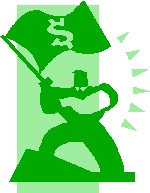
What is the difference between money market accounts and money market mutual funds?
Money Market Accounts
Money market accounts are savings accounts which earn interest and are made available by financial institutions that are FDIC insured. These money market accounts have limitations regarding transactions. Generally speaking, you are allotted at most five to six withdrawals or transfers a month. Financial institutions pay a higher interest rate to money market accounts than a savings account. Often you will find money market accounts that require a minimum deposit or balance.
Money Market Mutual Funds
One major difference between a money market account and a money market mutual fund is that a money fund is not insured by the FDIC and consists of investments held by the mutual fund that usually are related with short term debt. With the shortness of these maturities they are often referred to as cash investments.
The reason a money market fund is not FDIC insured is because it is a mutual fund that invests in lower-risk securities. For example, a money market fund can be a portfolio of securities including:
- Municipal (City) Bonds
- High Grade Corporate Bonds & Commercial Paper
- Certificates of Deposit
- Other low risk securities
A money market fund often pays dividends that should be close to short-term interest rates.
It is required by the Securities and Exchange Commission (SEC) that the maturity of investments in a money market fund should be less than 90 days. This helps reduce the risk that comes with investing in a money market fund. Owner shares in a mutual fund means that you own a small interest in the investments relative to the mutual fund. The interest rate is what fluctuates and not the share price and the share of a money fund (net asset value or NAV) should be equal to one dollar. If a money market fund's per share NAV falls below $1.00, the investor will experience a negative return.
If you are seeking an alternative to a money market fund, but want a low risk hands off investment, consider Betterment.com.
![]() Betterment allows you to invest in a specially selected portfolio of stocks and bonds based on years of research to produce strong returns with low risk. The only choice you need to make in Betterment is how much of you funds you want to allocate to stocks versus bonds. It is like your own 401k and you pay no commissions or transfer fees, only an annual management fee that ranges from 0.3% to 0.9% of your balance. If you're intimidated by the stock market and bored with current money market and CD rates, Betterment might be a good fit for you.
Betterment allows you to invest in a specially selected portfolio of stocks and bonds based on years of research to produce strong returns with low risk. The only choice you need to make in Betterment is how much of you funds you want to allocate to stocks versus bonds. It is like your own 401k and you pay no commissions or transfer fees, only an annual management fee that ranges from 0.3% to 0.9% of your balance. If you're intimidated by the stock market and bored with current money market and CD rates, Betterment might be a good fit for you.
Click here to visit www.Betterment.com
